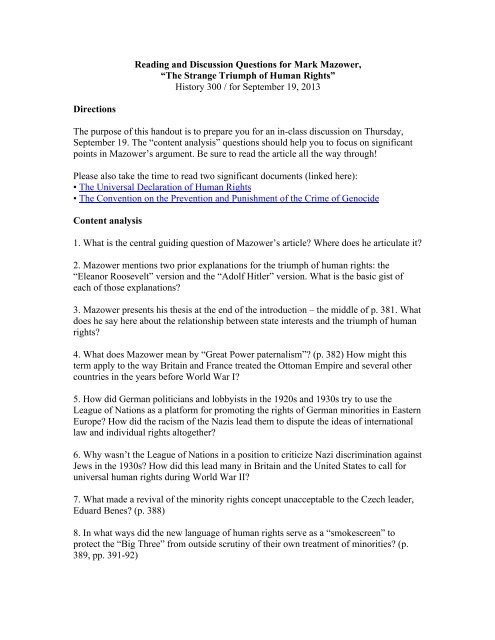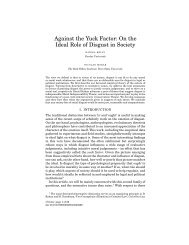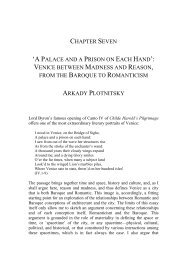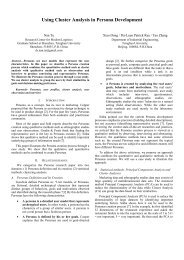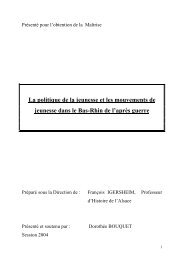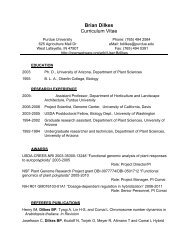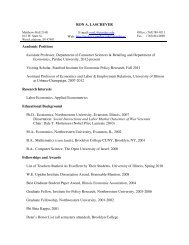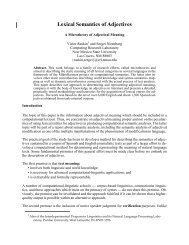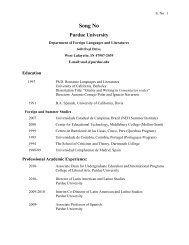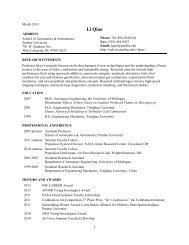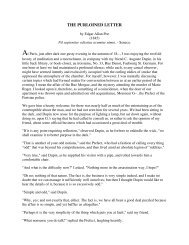Reading questions on Mazower
Reading questions on Mazower
Reading questions on Mazower
You also want an ePaper? Increase the reach of your titles
YUMPU automatically turns print PDFs into web optimized ePapers that Google loves.
<str<strong>on</strong>g>Reading</str<strong>on</strong>g> and Discussi<strong>on</strong> Questi<strong>on</strong>s for Mark <strong>Mazower</strong>,<br />
“The Strange Triumph of Human Rights”<br />
History 300 / for September 19, 2013<br />
Directi<strong>on</strong>s<br />
The purpose of this handout is to prepare you for an in-class discussi<strong>on</strong> <strong>on</strong> Thursday,<br />
September 19. The “c<strong>on</strong>tent analysis” <str<strong>on</strong>g>questi<strong>on</strong>s</str<strong>on</strong>g> should help you to focus <strong>on</strong> significant<br />
points in <strong>Mazower</strong>’s argument. Be sure to read the article all the way through!<br />
Please also take the time to read two significant documents (linked here):<br />
• The Universal Declarati<strong>on</strong> of Human Rights<br />
• The C<strong>on</strong>venti<strong>on</strong> <strong>on</strong> the Preventi<strong>on</strong> and Punishment of the Crime of Genocide<br />
C<strong>on</strong>tent analysis<br />
1. What is the central guiding questi<strong>on</strong> of <strong>Mazower</strong>’s article? Where does he articulate it?<br />
2. <strong>Mazower</strong> menti<strong>on</strong>s two prior explanati<strong>on</strong>s for the triumph of human rights: the<br />
“Eleanor Roosevelt” versi<strong>on</strong> and the “Adolf Hitler” versi<strong>on</strong>. What is the basic gist of<br />
each of those explanati<strong>on</strong>s?<br />
3. <strong>Mazower</strong> presents his thesis at the end of the introducti<strong>on</strong> – the middle of p. 381. What<br />
does he say here about the relati<strong>on</strong>ship between state interests and the triumph of human<br />
rights?<br />
4. What does <strong>Mazower</strong> mean by “Great Power paternalism”? (p. 382) How might this<br />
term apply to the way Britain and France treated the Ottoman Empire and several other<br />
countries in the years before World War I?<br />
5. How did German politicians and lobbyists in the 1920s and 1930s try to use the<br />
League of Nati<strong>on</strong>s as a platform for promoting the rights of German minorities in Eastern<br />
Europe? How did the racism of the Nazis lead them to dispute the ideas of internati<strong>on</strong>al<br />
law and individual rights altogether?<br />
6. Why wasn’t the League of Nati<strong>on</strong>s in a positi<strong>on</strong> to criticize Nazi discriminati<strong>on</strong> against<br />
Jews in the 1930s? How did this lead many in Britain and the United States to call for<br />
universal human rights during World War II?<br />
7. What made a revival of the minority rights c<strong>on</strong>cept unacceptable to the Czech leader,<br />
Eduard Benes? (p. 388)<br />
8. In what ways did the new language of human rights serve as a “smokescreen” to<br />
protect the “Big Three” from outside scrutiny of their own treatment of minorities? (p.<br />
389, pp. 391-92)
9. What was the difference between a “guarantee” of human rights and a “declarati<strong>on</strong>” in<br />
favor of “promoting and favoring” human rights? According to the UN Charter, who was<br />
resp<strong>on</strong>sible for ensuring that human rights were respected – sovereign states or the<br />
United Nati<strong>on</strong>s Organizati<strong>on</strong>? (pp. 392-93)<br />
10. How did the UN General Assembly emerge as a forum where human rights abuses in<br />
particular states might be held up for criticism? Why did the UN Human Rights<br />
Commissi<strong>on</strong> nevertheless prove to be toothless? (pp. 394-95)<br />
11. <strong>Mazower</strong> does not describe them in detail, but 1948 saw the adopti<strong>on</strong> of both a<br />
“Universal Declarati<strong>on</strong> <strong>on</strong> Human Rights” and a “C<strong>on</strong>venti<strong>on</strong> <strong>on</strong> the Preventi<strong>on</strong> and<br />
Punishment of the Crime of Genocide.” Based <strong>on</strong> what you have read, which of these two<br />
documents would you expect to have carried legal force? Which of them was a n<strong>on</strong>binding<br />
statement?<br />
Evaluati<strong>on</strong><br />
12. How well does <strong>Mazower</strong> back up his argument with relevant detail? Would you<br />
c<strong>on</strong>sider this to be a tightly focused article or a meandering, impressi<strong>on</strong>istic piece?<br />
13. Are you c<strong>on</strong>vinced by the author’s interpretati<strong>on</strong>? Do you buy his claims about the<br />
relatively minor role played by idealistic individuals and revulsi<strong>on</strong> against Nazism in<br />
explaining the “human rights revoluti<strong>on</strong>” of the 1940s?<br />
14. How would you characterize <strong>Mazower</strong>’s general perspective <strong>on</strong> internati<strong>on</strong>al<br />
relati<strong>on</strong>s? Is he optimistic, pessimistic, or somewhere in between?


